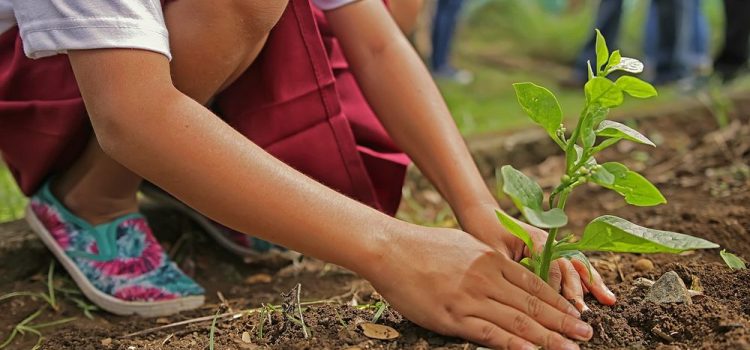
BLOG TEXT #1
what do children know about the environment?
Currently, it is quite difficult to find a sane adult who is unaware of the existence of global warming and ecological problems – in fact, some might say that becoming aware of ecological and social issues is a part of growing up in the modern world. But when do we start to pay attention to these things? Are there children who are ecologically aware – and if so, to what extent? What do children think about the environment and environmental issues? These are the questions I’ll try to answer in this article.
The question of ecological awareness in children has raised the interest of scholars around the globe, resulting in a number of academic studies. These studies of course differ based on the sample of children used in their production, which can vary in terms of age range, living conditions and nationality. For example, Stewart Cohen and Diane Horm-Wingerd have taken a look at American children aged 3-5, differentiating between children living in rural and urban communities. In their research, Cohen and Horm-Wingerd have found that preschool children are able “to identify graphically depicted ecological issues with accuracy” and that there is no significant difference between the capabilities of boys and girls, or rural and urban children.1
The Spanish academics José A. Corraliza and Silvia Collado have taken a different approach, researching how strong pro-environmental beliefs are in children, examining children of all ages and living conditions. They have found that while older children are more exactly aware of ecological issues (such as “there are too many people on Earth and not enough resources”), younger children show signs of deeper personal involvement (“my life would change if there were no trees”).2
The two studies detailed above suggest that while there are differences in the level of ecological awareness between children of various ages and nationalities, it can be stated with certainty that the majority of modern children are somewhat aware of the ecological issues of their surrounding environment and of the fact that these issues will have a negative effect on their future. To some extent, this is good news, as the children’s awareness raises hope for the possibility of a more sustainable and environmentally friendly future. On the other hand, it is quite concerning to hear that children in kindergarten already have a sense of ecological anxiety brewing inside them and that the idea of an ecological apocalypse is planted in them deeply (especially in the Spanish child who was referring to the possible lack of trees).
In order to truly grasp the depth of knowledge children around us have on topics relating to ecology, we must move further than studies and ask the children around us – which is exactly what we did. The director and project manager of our partner, Schule für das Leben (Sylvia Rotter, and Tess Posch) interviewed a number of children playing for the Viennese Children’s Theatre, asking them various questions regarding their ecological awareness – for example, what is “environment”, what can we do to protect it, what are you doing already for ecological protection and (perhaps most interestingly) how would you act against these ecological problems, if you were the one making decisions?
The answers they received were quite wide-ranging (as of course, each child has their own personality and experience), yet we can say with full confidence that the future is in good hands. Each child was able to fully articulate detailed characteristics of our surrounding environment, to show awareness of how the environment is being harmed by human behaviour, to illustrate the valid steps they are already taking towards a more sustainable future in their own personal lives, and even to give logical and (more-or-less) well-founded suggestions for the solutions of these problems. Take a look at these propositions, expressed by two very different children:
“Education. That’s the first step we need because far too much is just dismissed and given away.”
“What would be important, not driving a lot of cars, planes, trains, and not producing so [much] harmful substances.”
Others, on the other hand, had more ambitious and less doable ideas, yet it would not be possible to say that these propositions lack creativity or even logical foundation:
“To be honest, I would first accommodate humanity from Earth. All humans, for example, I would either send in a spaceship transfer somewhere else, on another planet that is maybe bigger, where they have more space, or just kill them all, and hope that this will produce a new breed of humans that is maybe more related to the environment.”
Therefore, it is definitely possible to be a bit less anxious about the future of our planet – the majority of our children (who will build this future) are aware of the scale and importance of ecological problems and already have brilliant ideas in regards to how these problems can be reduced or even resolved. It is important to note, however, that the majority of children featured in the studies and in our interviews focused on recycling and reducing waste – which is a good start, but it is not the most important environmental problem our world currently faces. Recycling is a step towards sustainability, but we must let our children know that environmental awareness does not stop there! Our job, therefore, is to further the scope of environmentally aware children and to not let this spirit die out in those that are already aware – this starts and ends in education!
Zoard Honeczy
1) Stewart Cohen, Diane Horm-Wingerd: Children and the Environment: Ecological Awareness Among Preschool Children, https://journals.sagepub.com/doi/10.1177/0013916593251005
2) José A. Corraliza, Silvia Collado: Ecological Awareness and Children’s Environmental Experience, https://www.redalyc.org/journal/778/77864998005/77864998005_2.pdf
